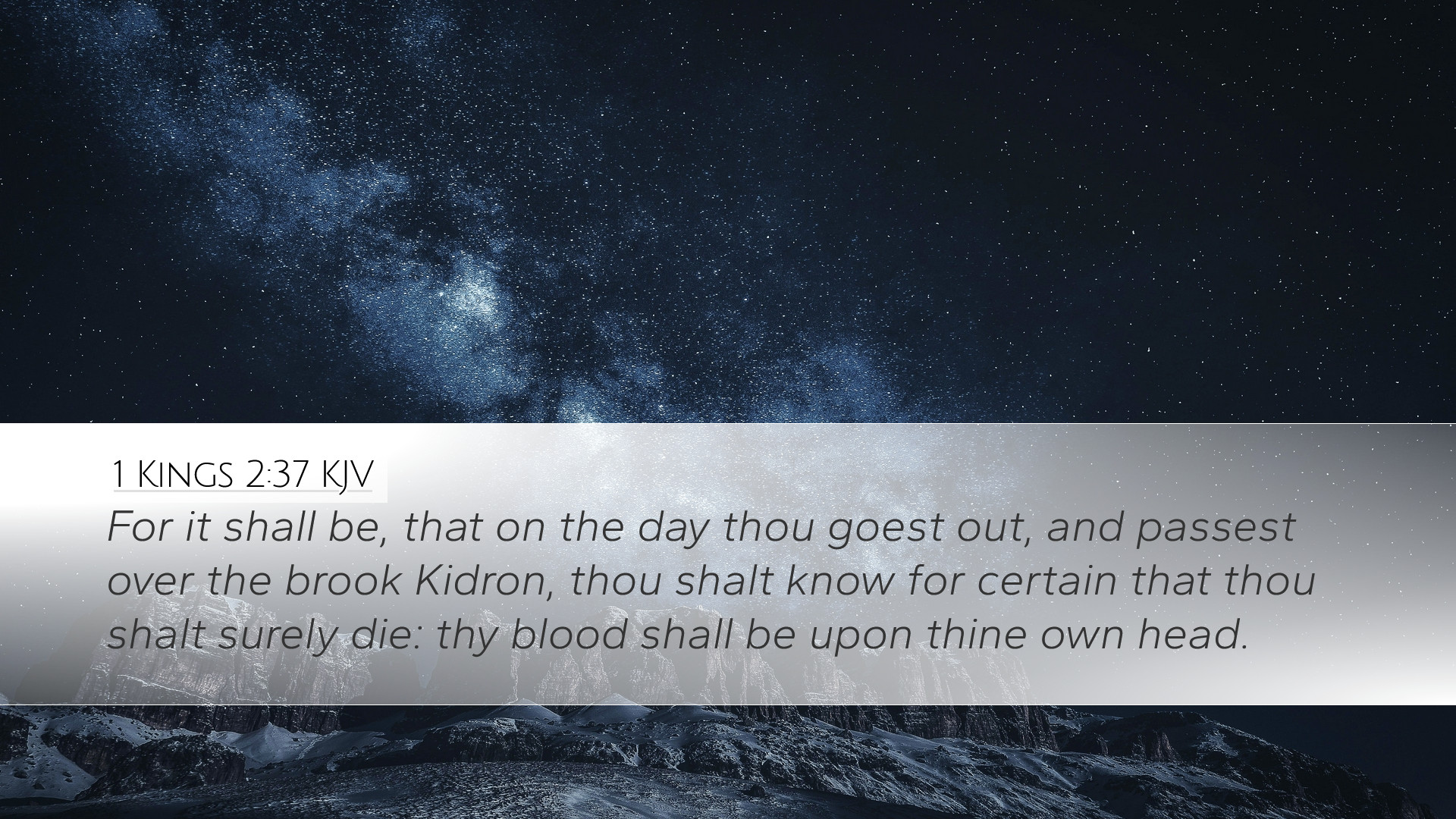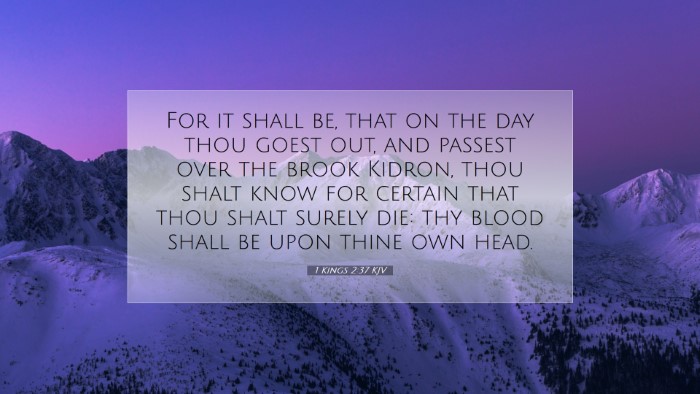Commentary on 1 Kings 2:37
Verse Context: 1 Kings 2:37 states, "For it shall be, that on the day thou goest out, and passest over the brook Kidron, thou shalt know for certain that thou shalt surely die: thy blood shall be upon thine own head." This verse is part of King Solomon's instruction to Abiathar the priest, who was an accomplice in the rebellion of Adonijah against Solomon's ascension to the throne.
General Overview
This statement by Solomon carries profound weight as it illustrates concepts of loyalty, judgment, and the consequences of rebellion. Solomon's pronouncement emphasizes the importance of allegiance in leadership, particularly the gravity with which he regards his authority as king and the actions of Abiathar.
Theological Insights
1. Divine Justice: The judgment pronounced upon Abiathar illustrates the principle of divine justice. Matthew Henry notes that Solomon's words reflect God’s sovereignty and the inevitable consequences of siding against His appointed leader. God uses earthly kings and leaders to execute His will and justice, which demonstrates God's ultimate control over human affairs.
2. Consequences for Rebellion: Albert Barnes emphasizes the fatal consequences of rebellion against divinely ordained authority. He argues that this pivotal moment serves as a stark reminder for all believers that rebellion against God-ordained leadership invites severe repercussions. Solomon, though merciful by permitting Abiathar to live, marked him for certain death should he venture outside the bounds set by the king.
3. The Gravity of Accountability: Adam Clarke highlights the theme of personal accountability found in this passage. Abiathar's situation underscores the idea that individuals are responsible for their own actions. While Abiathar may have been drawn into the conflict, he must now bear the consequences of that alliance. Clarke points out that every individual must reckon with their decisions before God.
Historical-Cultural Context
1. The Role of Abiathar: Abiathar was one of the few remaining priests from the time of David. His involvement in the conspiracy against Solomon, which was advised by Adonijah, marks a significant turning point in his career and legacy. Understanding the status of Abiathar as a priest helps contextualize the gravity of Solomon’s decree, not merely as a political maneuver but as a deeply spiritual and theological moment in Israel's history.
2. The Significance of the Brook Kidron: The Kidron Valley serves as a physical and symbolic boundary in Scripture. It represents the threshold of safety and the return to judgment. Accordingly, crossing this brook is more than a geographical act but indicates the transition from favor to judgment. It is a powerful metaphor for the deeper spiritual humility required to restore one's status.
Lessons for Today’s Believers
- Understanding Authority: Believers are reminded to recognize the authority established by God in both spiritual and secular contexts. Submitting to rightful authority is a biblical principle that plays a crucial role in the life of faith.
- The Cost of Compromise: Abiathar's partnership with Adonijah illustrates the dangers of compromising faith and integrity for political or personal gain. The cost of such compromises can be severe and far-reaching.
- Call to Accountability: The verse calls believers to a life of accountability, urging them to weigh their actions honestly before the Lord. Every choice has implications that extend beyond the individual, affecting the wider community.
Conclusion
The statement made by Solomon in 1 Kings 2:37 is rich with implications for understanding authority, justice, and personal accountability. For pastors, theologians, and students of Scripture, it serves as a profound reminder of the serious nature of sin, the severity of divine justice, and the necessity of remaining aligned with God’s plan. As one examines the text, it becomes clear that Solomon not only acted as a king but also as an instrument of God's will, underscoring the importance of rightful governance and the judgments that may follow rebellion.


